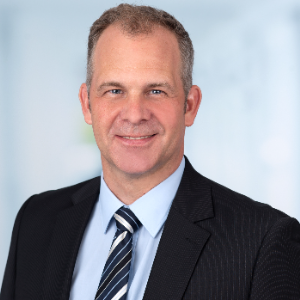Title : In vitro modelling of brain development and neurodegenerative diseases
Abstract:
Given the complex etiopathology of neurodegenerative diseases and the limited access to vital human brain cells as suitable research platform, there is an increasing demand of innovative human-specific model systems that help elucidating the causative mechanisms of these disorder and open the avenues for novel prevention and/or treatment strategies. The advent of cell reprogramming has enabled the generation of induced pluripotent stem cells (iPSCs) from patient fibroblasts or blood cells and their subsequent differentiation into tissue-specific cells, including neurons and glia. This approach in combination with in vitro genome-editing technology is suitable to recapitulate disease-specific phenotypes but also neurodevelopmental aspects in classical cell culture paradigms and thus represents an invaluable asset for developmental research, disease modelling and drug validation in the framework of personalized medicine.
Here we demonstrate how in vitro modelling of neurodevelopment and neurodegeneration in classical two-dimensional and 3D model systems may unveil underlying causative mechanisms and target pathways. First, we demonstrate that the cytoprotective NRF2 signaling pathway is upregulated and activated during neuronal differentiation from neural stem cells to maturing neural populations. We continue to show how this pathway is regulated and able to protect neural populations from environmental insults, e.g. oxidative stress, during development. Next, using iPSC-derived dopaminergic neurons from a Parkinson’s Disease (PD) patient carrying the causative LRRK2 G2019S mutation, we demonstrate that mutant carrier cells display defects in homeostatic turnover of mitochondria (‘mitophagy’) as early as at day 8 of differentiation. These data pinpoint one important causative mechanism in the pathology of PD, i.e. quality control of mitochondria, and emphasize the vital role of mitophagy regulation during early steps of neuronal development. Moreover, we asked which subcellular pathways contribute to formation of neuronal intranuclear inclusions (NIIs) of mutant Ataxin-3 protein in an iPSC model of polyglutamine disease (spinocerebellar ataxia type 3/SCA3). Inhibition of autophagy (an essential lysosomal degradation system) resulted in a significant increase of NIIs in the susceptible cell population, and the build-up of NIIs could be abated by pharmacological upregulation of autophagic flux. As outlook, we present our approach on how to dissect the connection between diet, the gut microbiome composition, brain circuitry and manifestation of metabolic diseases such as obesity and its comorbidities (including dementia) using a translational approach in combination with in vitro model systems.
In summary, our work emphasizes the usability of innovative in vitro models for assessment of development, disease pathways and even organ crosstalk.
What will audience learn from your presentation?
- which in vitro model systems are nowadays available to study disease mechanisms in the dish
- which histological and molecular features could be used in the clinic to interpret pathological findings
- which shared cellular and molecular events underly the pathogenesis of neurodegenerative diseases
- how preclinical drug screening can be performed on authentic human cells




